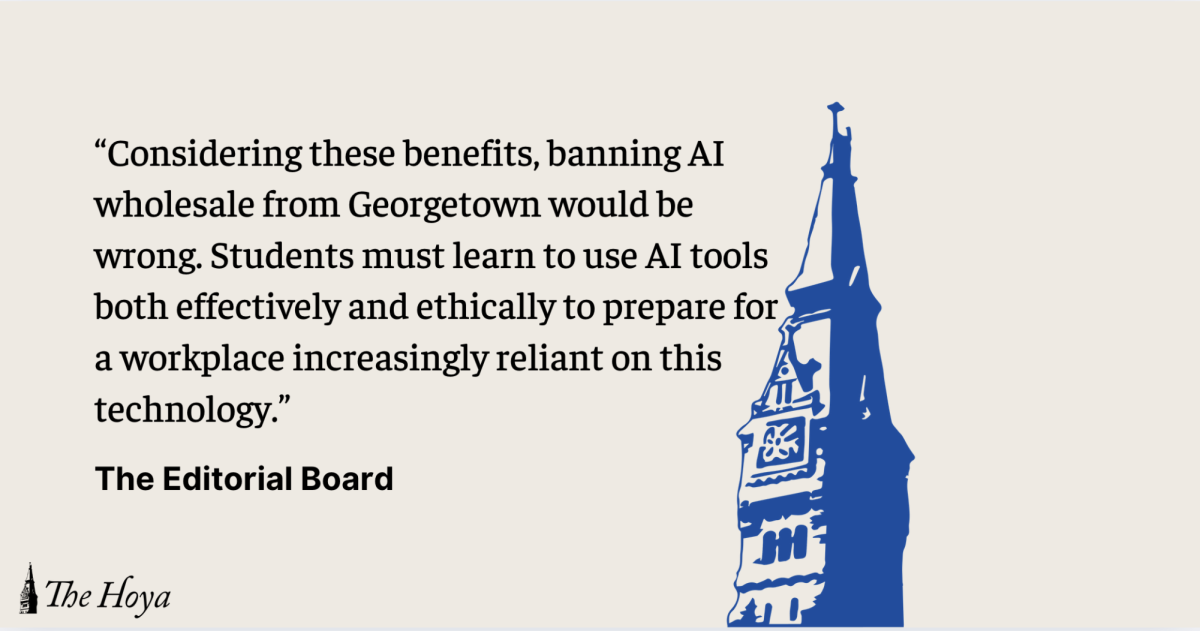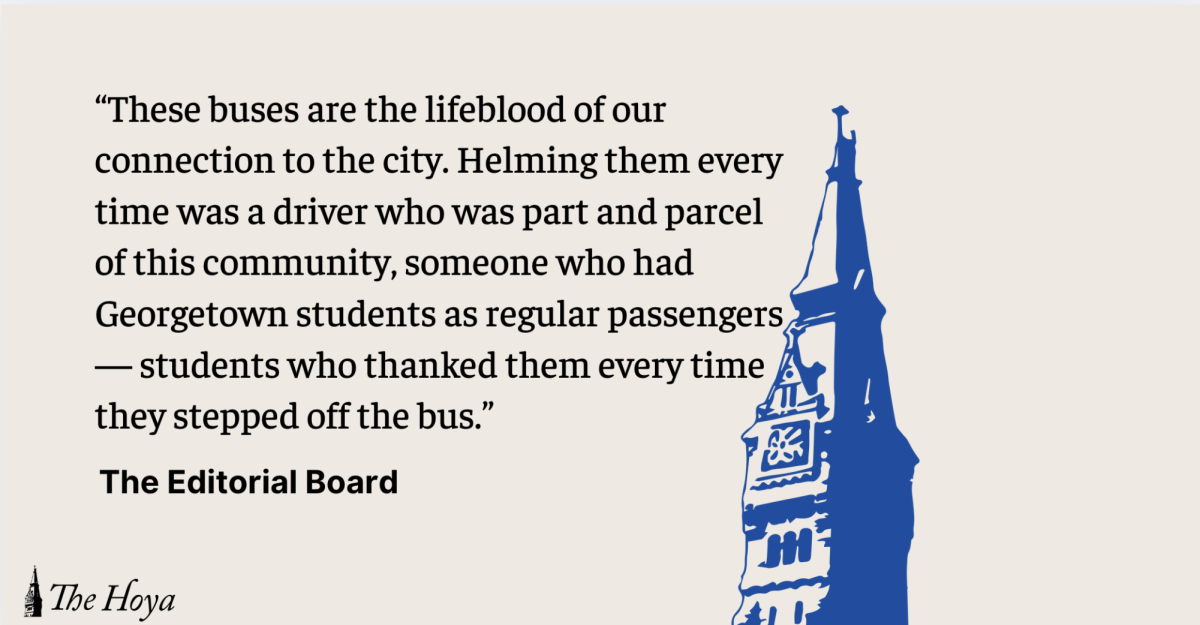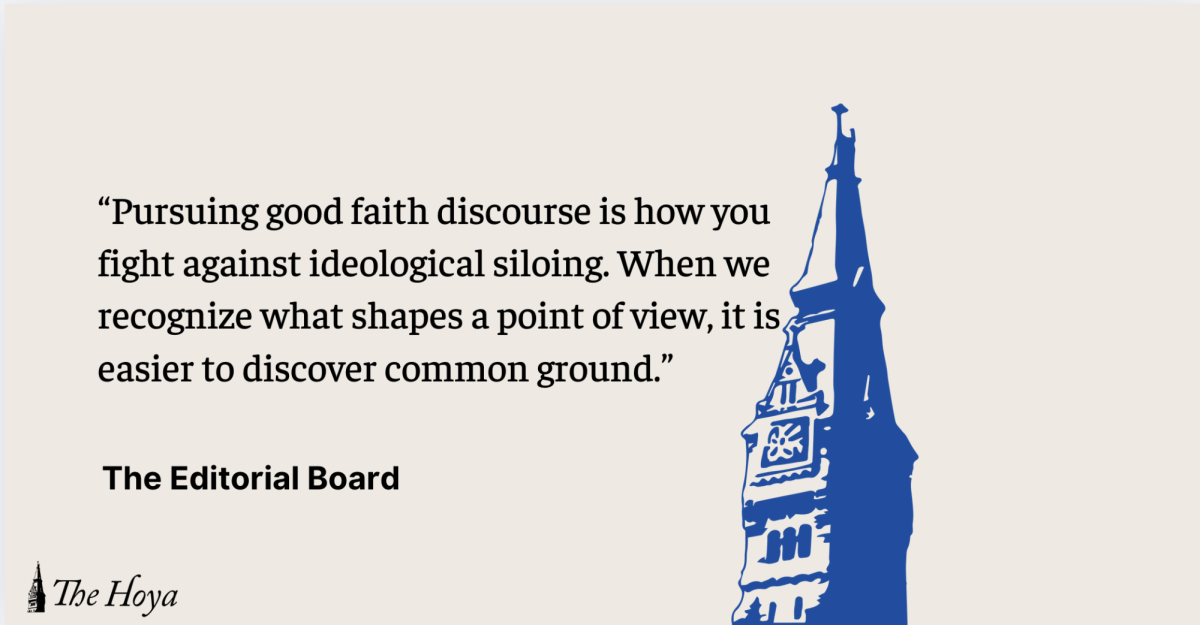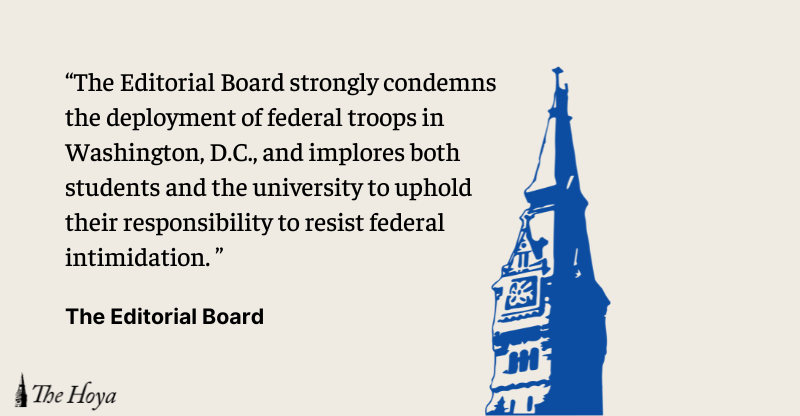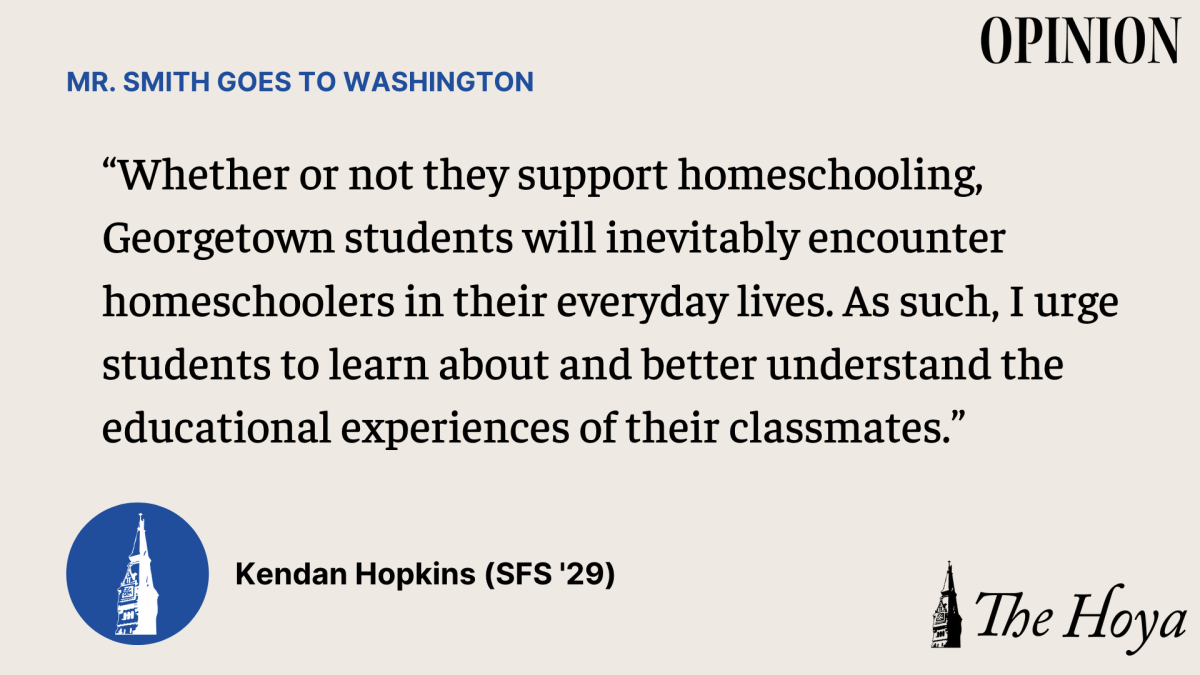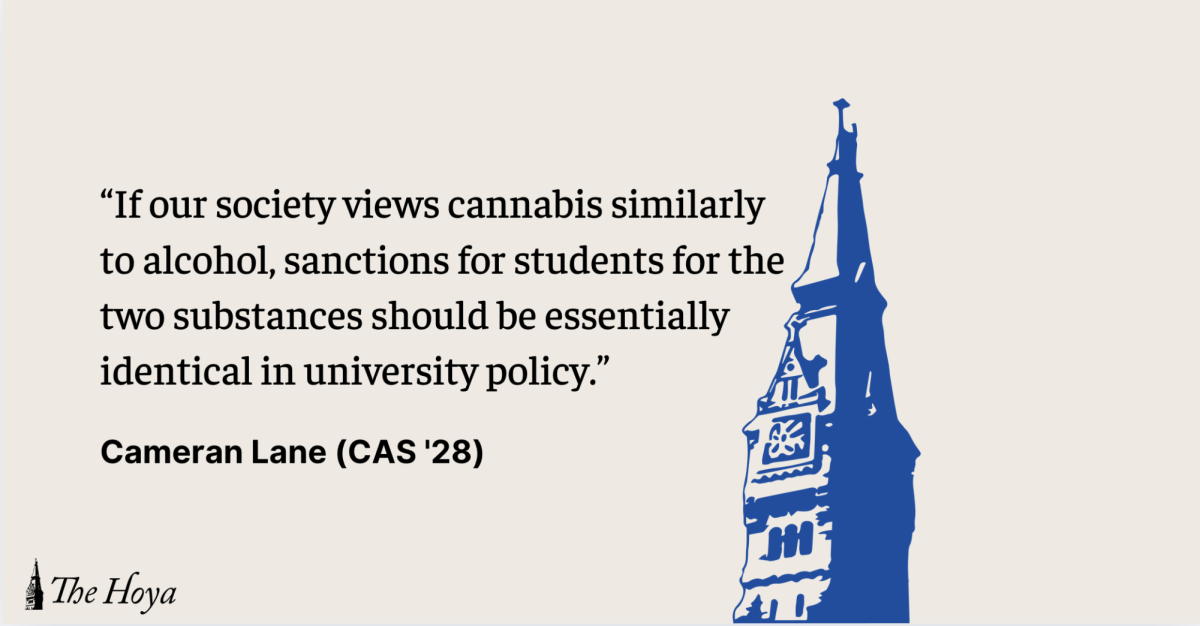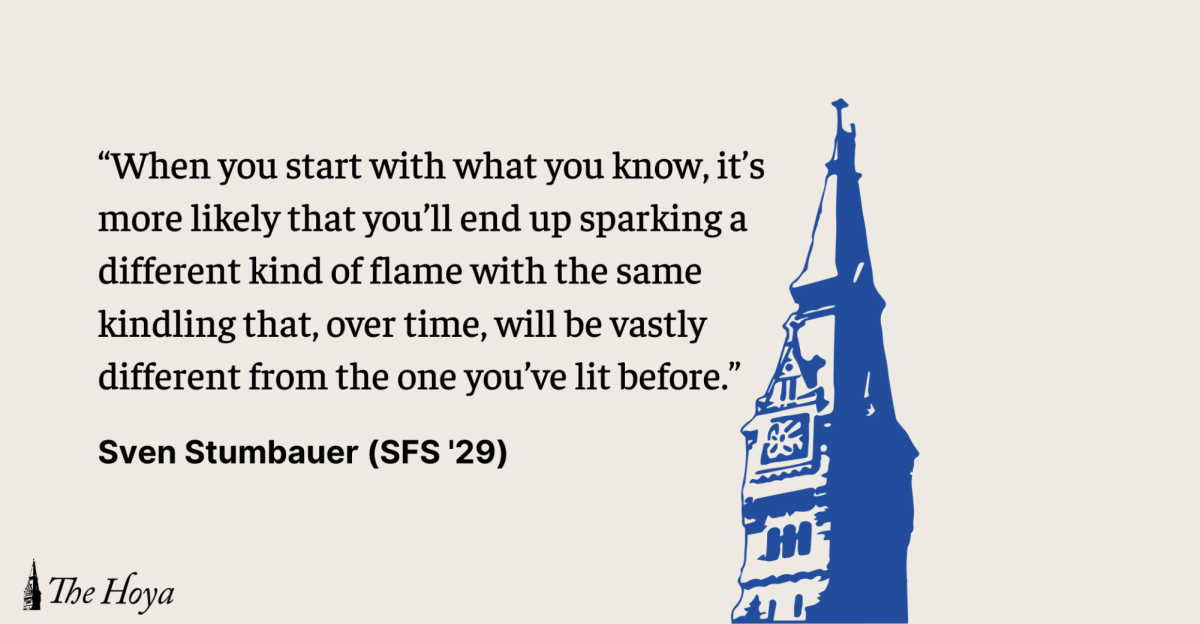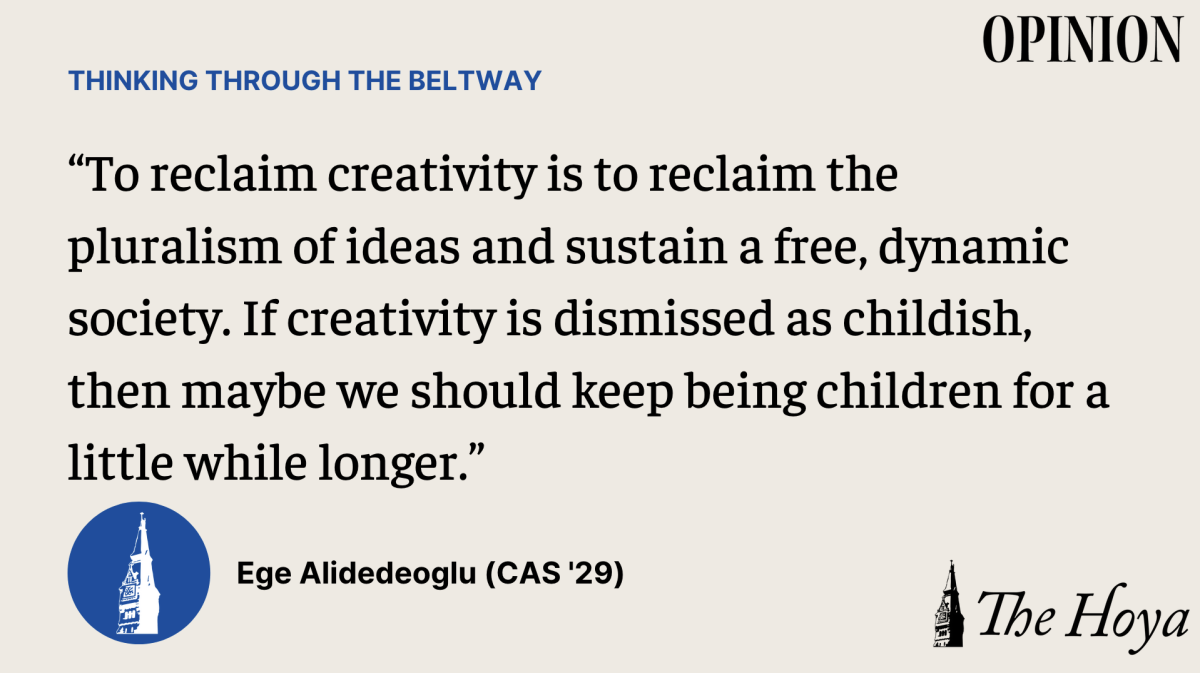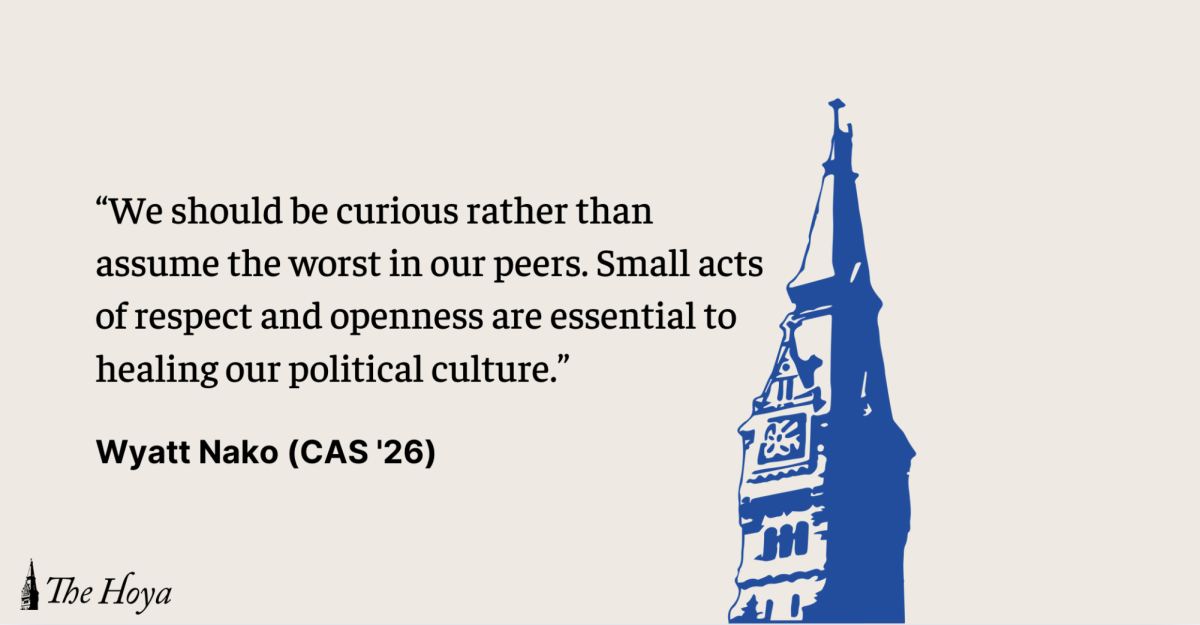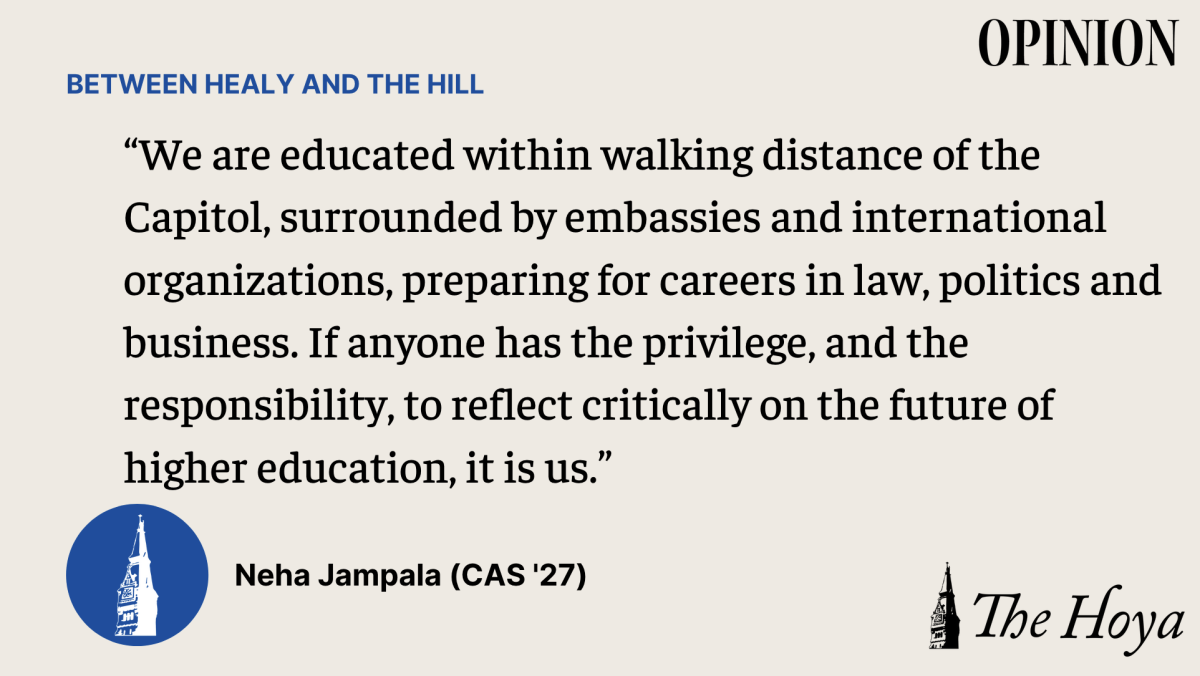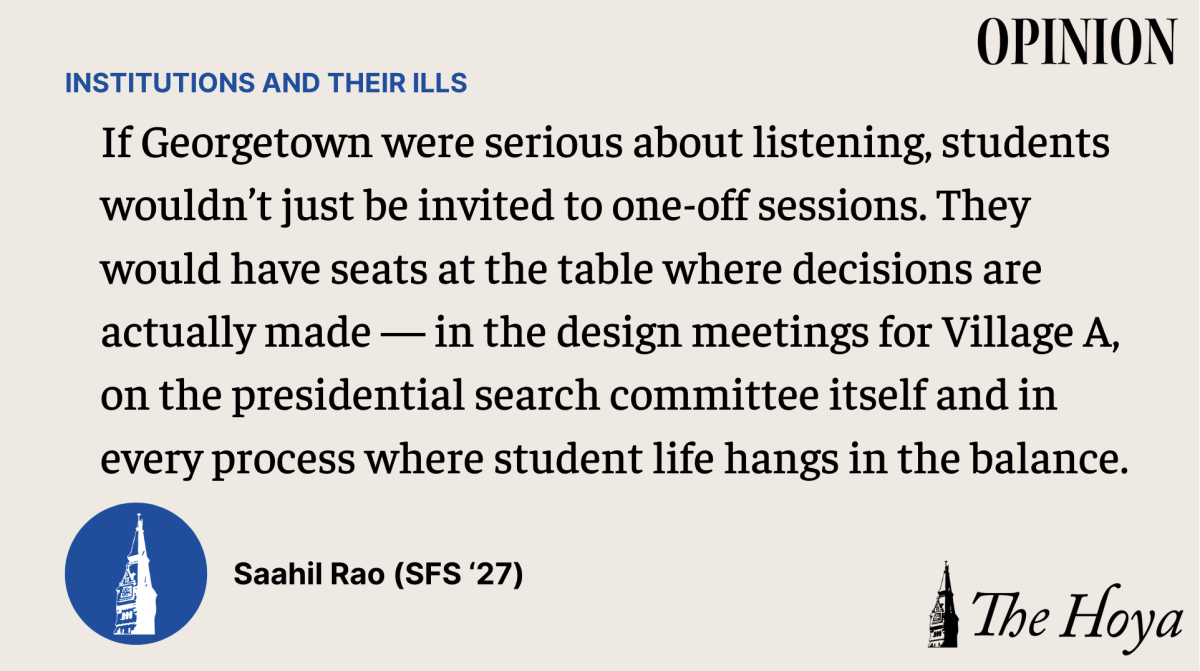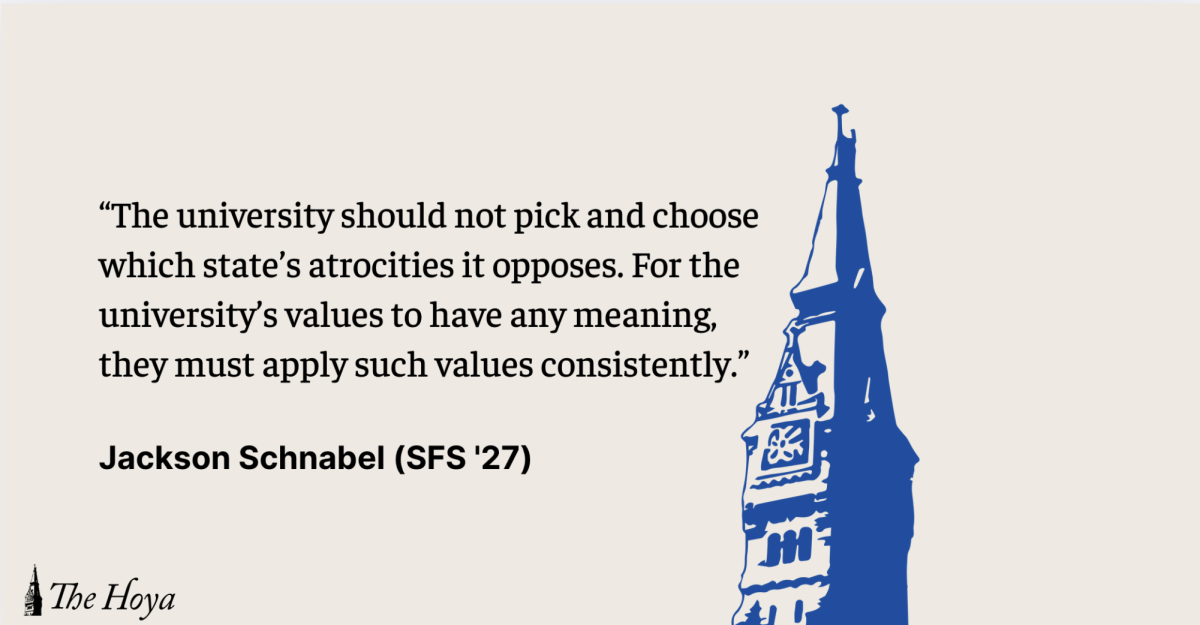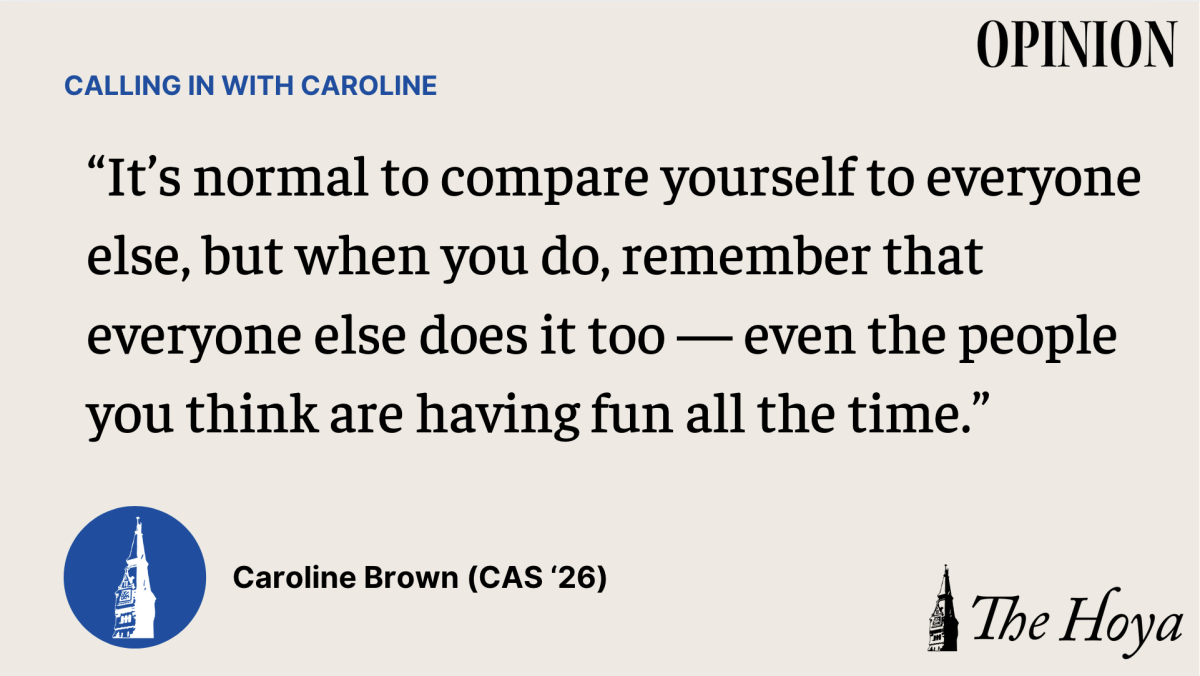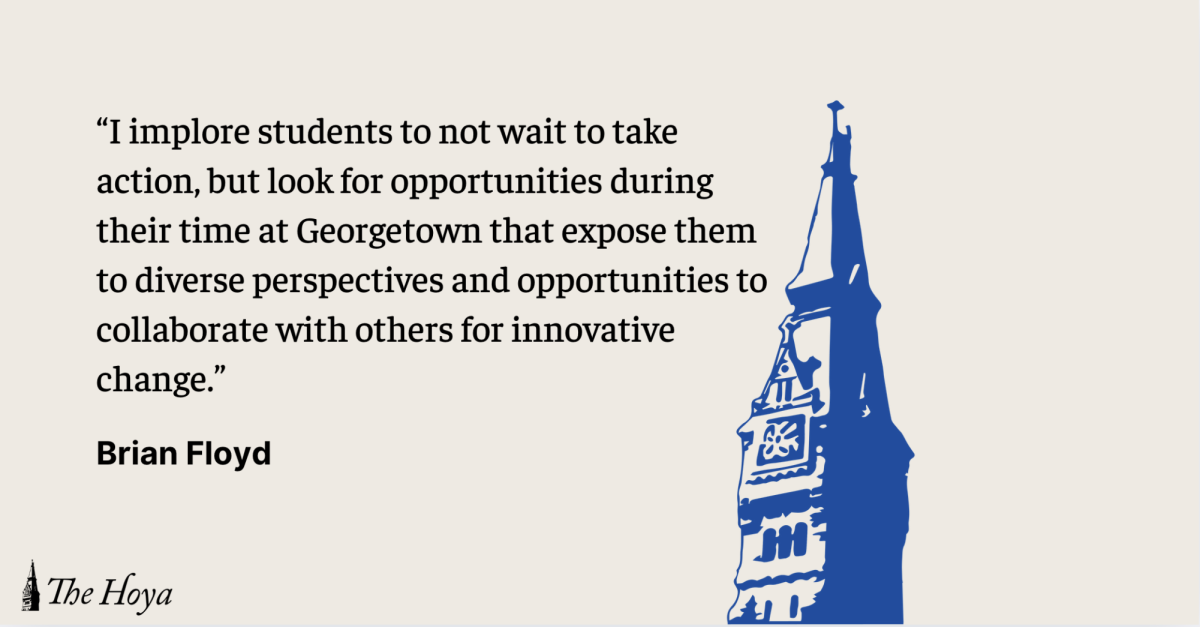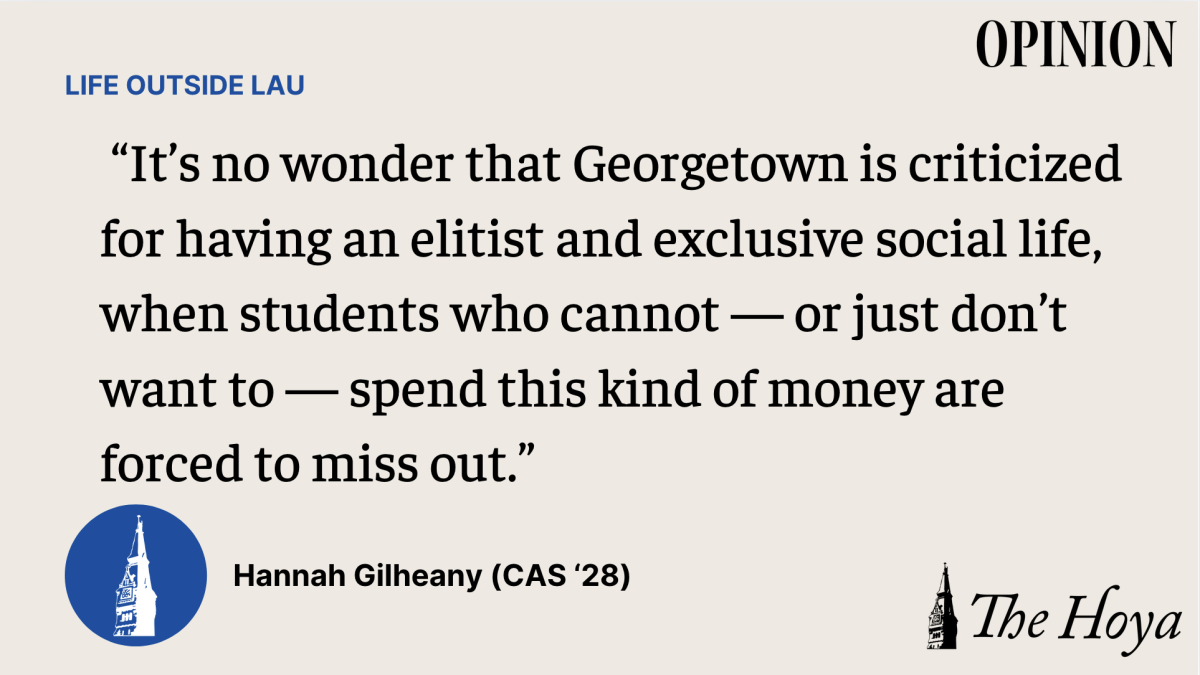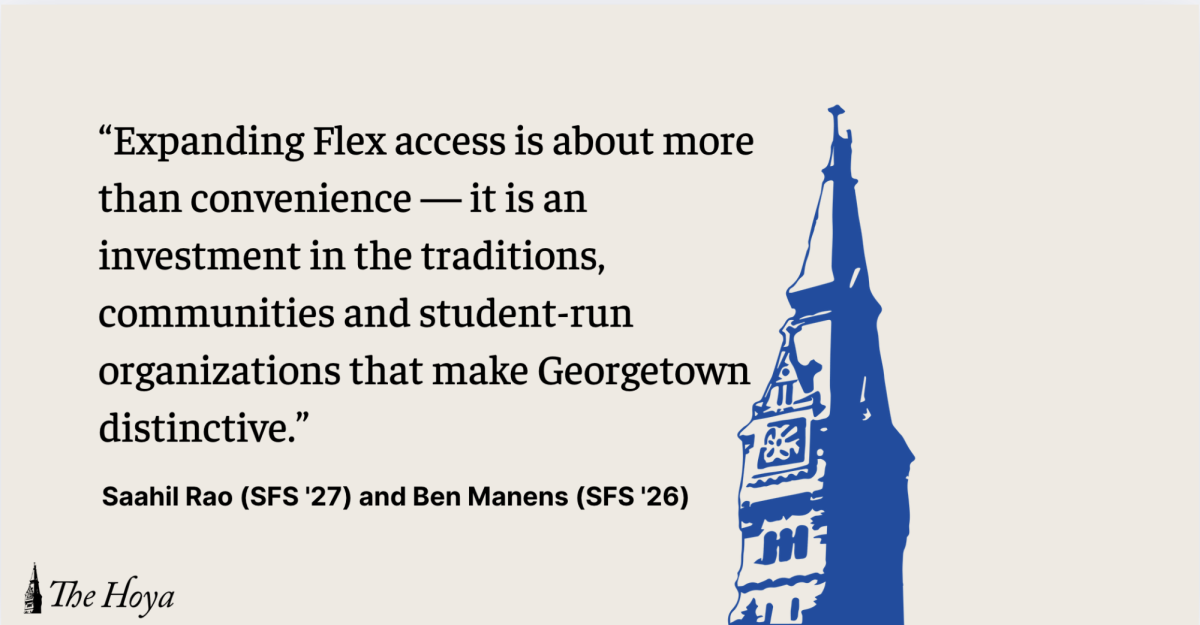President Emeritus John J. DeGioia’s (CAS ’79, GRD ’95) successor as Georgetown University president will take over a growing $3.2 billion endowment, a $337 million research budget, a newly built Capitol Campus — and, most importantly, leadership over a student body of over 20,000.
Indeed, according to a Jan. 10 announcement from Thomas A. Reynolds (GSB ’74), chair of Georgetown University’s board of directors, the board’s presidential search committee aims to find a candidate who can “articulate and implement the University’s vision for excellence” and “foster a sense of community, shared purpose and collaboration among the University’s faculty, staff, students and alumni.”
Of the 12 announced search committee members, five are Georgetown graduates and four are professors — yet none represent perhaps the most important constituency at Georgetown: its students. While the Editorial Board does not doubt the search committee members’ qualifications and experience, it is disappointed in the lack of direct student involvement in the presidential search.
According to a university spokesperson, the committee will hold listening sessions for Georgetown community members, including students, to give input on the search; still, no students are formally part of the search process.
“The process is governed by the University bylaws,” the spokesperson wrote to The Hoya. “The search will consider candidates from all backgrounds. There will be ample opportunity for members of the Georgetown community, including students, to provide feedback to the search committee through listening sessions.”
Yet these listening sessions are not enough to truly represent the student body’s interest in the committee’s work. The Editorial Board urges the board to include student representation on the search committee to ensure Georgetown’s next president can truly advocate for students’ needs and deepen connections across the university.
All of the committee’s members share ties with the university in some capacity, be they parents, graduates or members of the Jesuit community. Yet the majority of the committee members are detached from undergraduate campus life, rendering them unable to fully consider and advocate for students’ interests.
For example, six of the 12 members are only affiliated with Georgetown as either graduates or parents of graduates — important connections to the university, to be sure, but not connections that guarantee awareness of student needs.
Two other members are Jesuits not based at Georgetown, with one serving as a priest in Rome. Of the remaining four committee members, only two — professor Nicoletta Pireddu, who teaches courses in Italian and comparative literature, and professor Kathleen Maguire-Zeiss, who teaches courses in biology and neuroscience — currently teach undergraduate students at Georgetown.
To ensure the new president can foster those university-wide relationships and address students’ needs, it is imperative to place students on the search committee.
Ulises Olea Tapia (SFS ’25) said he hopes to see students involved in the search process.
“It is certainly discouraging to see that there is no student representation in such an important decision,” Olea Tapia told The Hoya. “Students will undeniably be the most affected group by this decision, so we should at least have a voice within the committee.”
Rylie Hannon (CAS ’27) said a student voice on the committee would benefit its search.
“While I understand that the process for selecting a new university president is difficult and requires a certain level of expertise, it’s difficult to imagine that the future of Georgetown leadership will be decided without a student advocate,” Hannon told The Hoya.
Notably, there is precedent for placing students on a university presidential search committee.
Rutgers University, which is currently in the process of selecting a new university president, officially formed a presidential search committee of its own in November. Among the committee’s 20 members are three students, both graduate and undergraduate.
Georgetown itself has included students on its prior search committees for other positions: The 2014 search committee that hired Joel Hellman as dean of the School of Foreign Service included students among its 17 members, while the 2012 committee that selected current Interim President Robert M. Groves as provost also featured students.
Even without placing students on the search committee, Georgetown could also maximize student representation through creating a student advisory council based on the council Yale University established for its 2023 presidential search. Yale’s search committee charged the advisory council with gathering information and formally deliberated with council members throughout the search process. Similarly, previous searches for Harvard University presidents have also consulted with students in a formal capacity.
The Editorial Board urges Georgetown’s board of directors and search committee to follow these universities’ examples. The next president of the university will be the steward not only of Georgetown University, but of Georgetown’s students; students, too, should get a say in determining their school’s future.
The Hoya’s Editorial Board is composed of six students and is chaired by the opinion editors. Editorials reflect only the beliefs of a majority of the board and are not representative of The Hoya or any individual member of the board.



